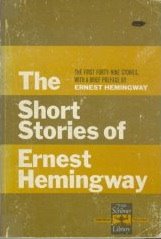 A couple days ago, waiting to be seated for dinner, my wife and I were talking politics and I said, "You know who I hope Obama picks as his VP? Al Gore."
A couple days ago, waiting to be seated for dinner, my wife and I were talking politics and I said, "You know who I hope Obama picks as his VP? Al Gore."Why, you and she may ask...
Because I love Al Gore, in a he-was-the-best-president-this-country-never-had kind of way.
I mean, take The Assault on Reason, Gore's indictment of politicians having to spend more time searching for funding for 30 second TV campaign commercials than debating whether or not to go to war in Iraq, his full-on critique of the Bush administration, and his pronounced love for this country. The guy is a patriot, he is an American, the way it should be, not the way it's become.
It's sad when 10 years ago the country was crying for impeachment because Clinton lied about cheating on his wife (not that that's okay, I'm just saying) but no one even utters the word at Bush's outright lies about WMDs in Iraq. And that's just the beginning. The turn this country has taken in politics is beyond disappointing. Al Gore knows it, and he still has hope.
What's not to like?
Read this book. This is required reading if you are voting, whether you're Democrat, Republican, or neither, read it. Gore's views are bi-partisan, he's making a claim to both sides, and he gives both sides a chance. His book is enlightening and invigorating. It's books like this that make me hopeful that a democracy can be what it's meant to: not people agreeing but intelligently disagreeing, and openly debating about the best way to go. When Gore mentions moveon.org, he mentions rightmarch.com, it's Republican counterpart. He sees the need for diverse opinions in this country. It's just like farming, if there's only one crop, it's way more susceptible to pests and disease than if there are a variety of crops.
What Gore's against is the claim to faith and fear and things that make reason seem impossible. We need open debate, transparency in the government, and an electorate that doesn't take democracy for granted.
Al Gore was not picked as Obama's VP nor was he probably even considered, but he is still a very worthy American. I'm a fan, huge fan, and have the utmost respect for what he's trying to do. Now he just needs enough people to listen.



